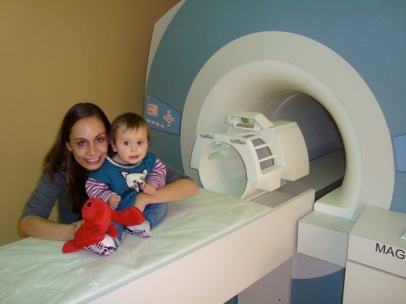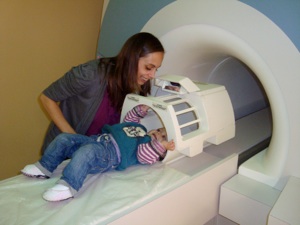Babybold Study
We are currently recruiting infants and toddlers with a first-degree family history of dyslexia or lasting reading difficulties, born full-term. If you are interested in getting involved, please contact us!
Research has shown a genetic link in the development of dyslexia, with children who have a family history (at least one first degree relative, such as a parent or sibling, with a diagnosis) at a higher risk than children without a family history.
The BabyBOLD Study seeks to further explore this line of research through magnetic resonance imaging (MRI) as well as reading, language, and cognitive assessments. The purpose of the study is to use these methods to track the development of the reading network in children at three time points: infancy, toddler-age, and preschool-age to investigate how early brain differences in people at familial risk for dyslexia manifest.
This, in turn, has the potential to inform more effective prevention and treatment strategies for susceptible children before they go through certain crucial stages of brain development in the first two years of life!
We compare the brains of infants with and without a family history of developmental dyslexia using Magnetic Resonance Imaging (MRI). MRI is a safe and completely non-invasive method that we use to take pictures of the brain! To learn more about MRI, please visit our MRI Safety and Preparing for your MRI Visit pages.



